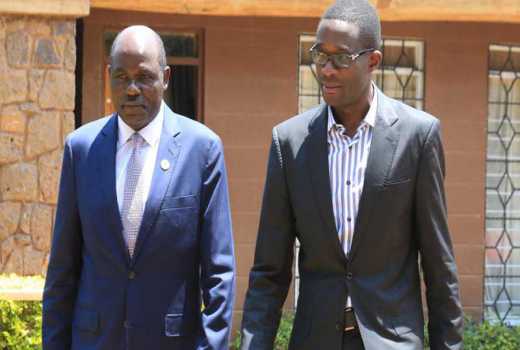×
The Standard e-Paper
Fearless, Trusted News

A South African company came from the blues and offered to print the presidential ballot papers in a record time ahead of last year’s General Election.
In a revelation that may explain the riddle of the ongoing multi-billion shilling tender wrangles at the heart of electoral commission fall out, Ren Form CC wrote to Independent Electoral and Boundaries Commission (IEBC) CEO Ezra Chiloba offering to make the supplies in the middle of a crisis period.